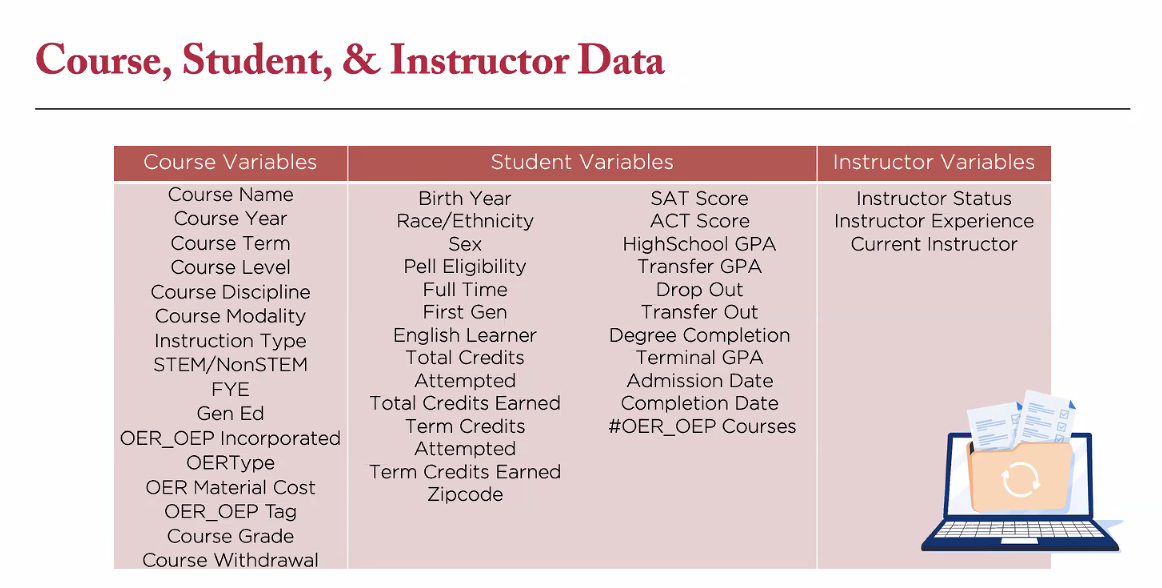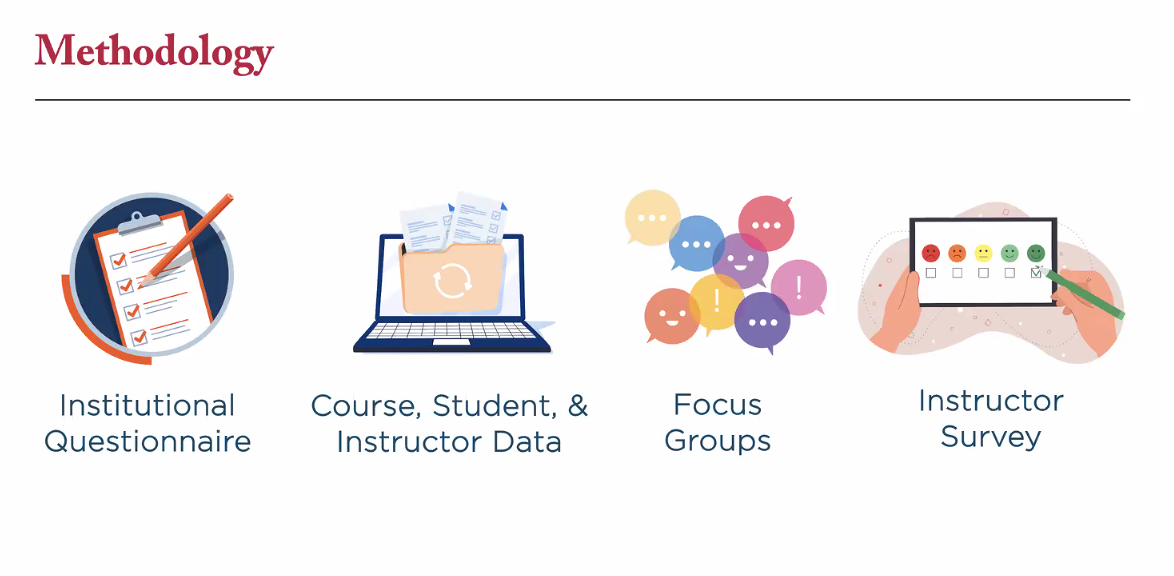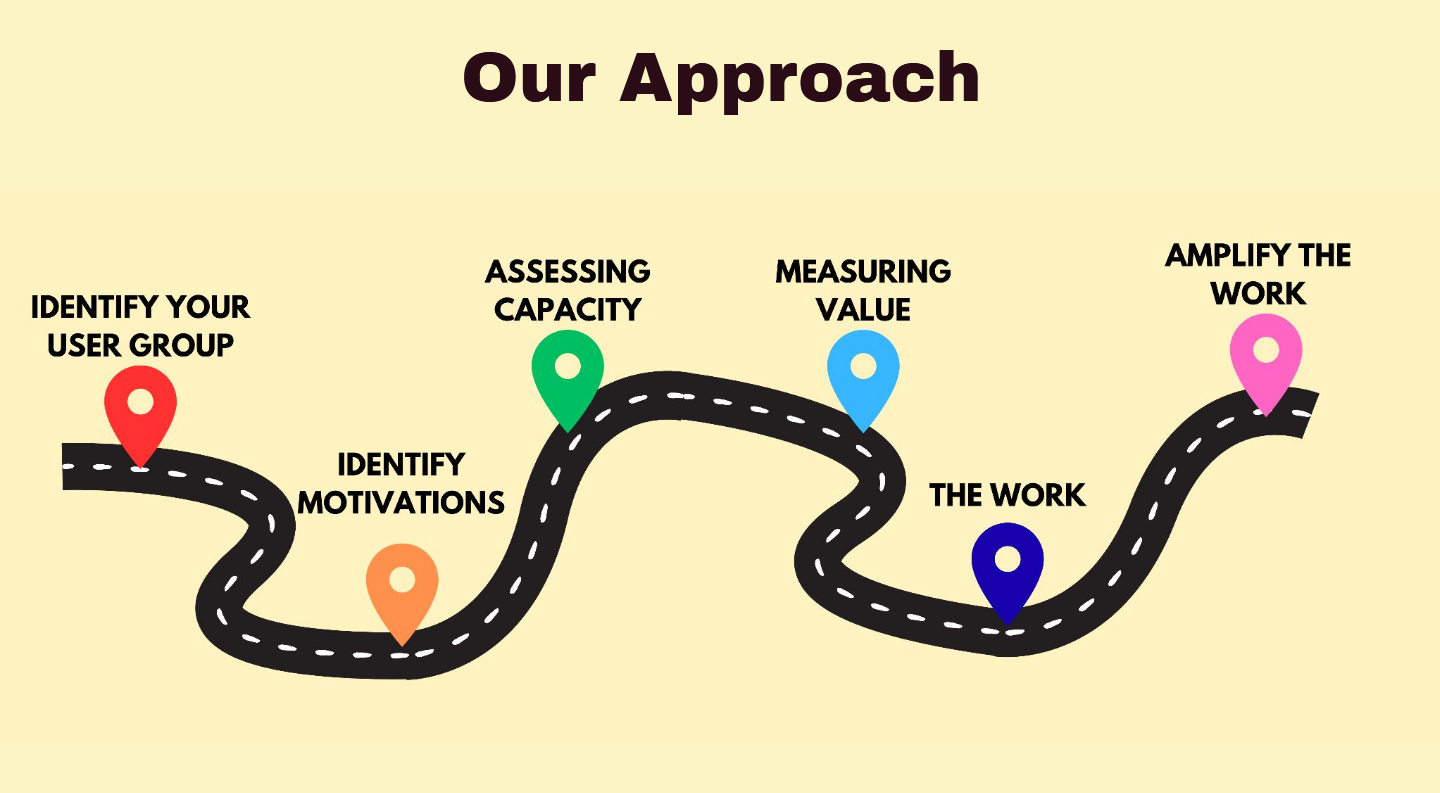The team has a lot of data exploring ties between #OER + other factors (institution, course, the student). There is a pattern here: the affect of OER on withdrawal rates is stable across the board, but OER helps students even more when they are in one or more underrepresented groups (e.g. Pell eligible students)
It was also important for the research team to find instructors who were teaching the same courses pre-OER and post-OER, to better compare the outcomes across that data.
A lot of data was used to get a more complete picture of the courses, instructors, and students being studied, to help the researchers understand where variables might be affecting what they found. "Pulling this data was an experience," Heather Miceli notes. #OpenEd25
As part of this research, the team thoughtfully considered how they could limit bias and also get more robust data. For example, as they collected data on #OER adoption, they wanted more context about individual courses and instructors' adoptions, to account for ideal adoptions (localized, supported, integrated into LOs) and less ideal scenarios (simple flips)
Part of this work is that we need to consider what tools we are encouraging and How we are encouraging their use. How can we create a foundation for the responsible use of AI among students? Build community, trust your students, & motivate them to learn by making your course valuable & engaging.
As with many of the presentations at #OpenEd25, I am so glad to be learning with and from the speakers here this morning. Karen is always a wonder to hear from and I am lucky to be listening in this room and sharing with you all! But I'm going to cut off my live posts here to engage in Q&A more thoughtfully.
And since this is #OpenEd25, of course, we're going to connect that work in #OpenScience to #OpenPedagogy. How can we invite students into their learning experience as co-creators of knowledge, and teach them best practices for sharing well and broadly, as outlined by our peers in open science?
Open pedagogy is an educational practice that encourages collaboration and community engagement (much like service learning) and students developing learning objects (not just textbooks! We are sick of textbooks!) and students can learn to be open scholars through this work. #OpenEd25
One thing we can do better is to reach out to a broader audience, Karen argues. Open science is often marketed to established scientists, but we need a cultural shift in this work, by supporting citizen science and bringing in undergraduates into this important #Open work too.
And since this is #OpenEd25, of course, we're going to connect that work in #OpenScience to #OpenPedagogy. How can we invite students into their learning experience as co-creators of knowledge, and teach them best practices for sharing well and broadly, as outlined by our peers in open science?
This morning, I am late to my first #OpenEd25 session of Day 3, "Developing a Comprehensive Undergraduate Open Science-Open Pedagogy Program" by Karen Cangialosi. I did catch a great quote as I snuck in the door, though: "Science supports democracy, and democracy supports science."
Awards of appreciation, signed by the Dean of the libraries at NCSU, is one way that the team has highlighted faculty. They've published featured articles.& they've made a concerted effort to spotlight not just "high-savings" projects, but also innovative projects like those that use VR or OEP
This team has done some excellent work, so I highly recommend checking out their slides and following the work happening at NCSU more closely to learn more: https://sched.co/270KH
#OpenEd25
Each of the "pit stops" on this road or process can come about in many different ways. You need to approach it based on your community, your institution, and your faculty. But connecting with them on an individual level is the important piece here. #OpenEd25
We have seem some success, though, David notes, particularly when we focus on the storytelling aspect of communicating the impact of work with #OER. When we take this approach, faculty feel more connected and supported.
Next up at the end of Day 2 for #OpenEd25, I'm attending "'Thank You for All You Do': Celebrating Faculty Contributions in Open Education" from David Tully and Katya Mueller from NCSU!
James asks, "What other sources of funding are there outside of your immediate area of interest?" with Joy adding, "We've received federal funding for many years which was not explicitly geared towards #OER but OER was a tool which could be used to meet the goals of that grant.
This is a short presentation, but it's important for us to look inward and outward to consider "How can we make our work sustainable?" and also "How can we build awareness of our work and its relevance to our many communities? Thanks to the presenters and the #OpenEd25 team for sharing these tips.
We can align #OpenEducation to student success, degree completion, access and affordability, and instructional innovation (all major areas for many of our schools). It is relevant to these discussions, but we need to advocate for that to be made clear.
We can also identify strands of funding available at our institution. Funding for professional development, digital learning, partnerships with units across campus who care about student success and want to support our community, and finally, grants and philanthropy (not just "OER" grants)
#OpenEd25
Now at #OpenEd25, I'm attending "Institutional Alignment and Braided Funding for Sustainable Open Education Programs" from Joy Shoemate and James Glapa Grossklag.
I hope others at #OpenEd25 were able to take some good notes at my last session of the conference! I couldn't take notes myself since I was presenting, but I'm back to share about my experience at the last couple of sessions of the day!
Okay, one more, just because it's really good to quote: "the path gets wider when more people are moving together." We need to be able to stop, pause, and check in with each other. We can't affect change without the support and engagement of others. And that can be 1, 2, 5 people, but any number of people we're working with is powerful to help us make change and make even just a step's forward of progress.
What an excellent keynote! Thanks to the #OpenEd25 team for bringing together the speakers we're seeing this week, from students and governors yesterday to scholars and authors today. It's been great to learn from and speak with one another like this.
adrienne replies, "Even if we think everyone in the same system or group can come to a consensus, we need to understand that is about balancing our differences," recognizing that different people have different needs and we need to be able to see and hear each other and find the best option to meet those shared goals. Not just for low hanging fruit but for the real issues that we care about together.
As I'm sure you can tell from these quotes, this is a very engaging keynote, so I will leave off the live-posting here and focus on the speaker. Thanks for listening in to the opening of the talk with me! #OpenEd25
Kicking off Day 2 of #OpenEd25 with a keynote from NYT-bestselling author adrienne maree brown (though actually there were some virtual presentations earlier in the morning for those who were more proactive than I)
I've been too busy to post the rest of the #OpenEd25 conference today, but I am at my last session for today, titled "Collaborating With the Intended Audiences of your OER Project: Visualizing Engineering Concepts through Open Resources!"


